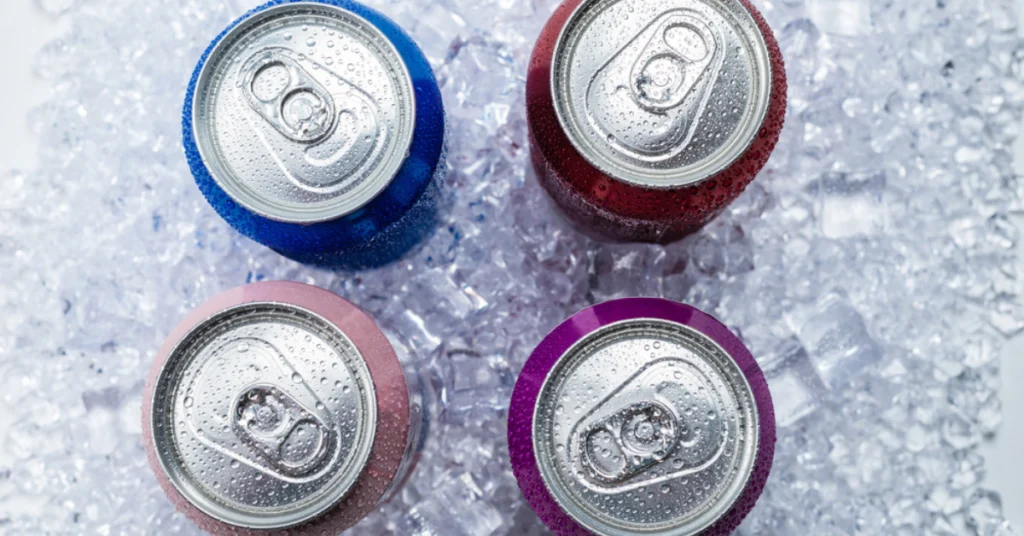Beverages that promise to increase adrenaline naturally attract a sleep-deprived populace, but how safe and effective are they? You might be surprised by the truth. Energy drinks frequently count as supplements, allowing them to avoid rigorous labelling rules.
According to a survey study by Gallup, “An overwhelming majority of adult approximately 84 million people do not receive the required 7-hours of sleep every night. Also the American Sleep Disorders Association found that up to 70 million individuals may suffer from some kind of sleep disturbance.
The obsessions of individuals with energy drinks explained by The National Center for Integrative and Complementary Health (NCCIH), these kinds of energy drinks, which promise to improve energy levels, stamina, & alertness, are considered as second only option to multivitamins in terms of supplement use among teenagers & young adults.
Despite their great popularity, many people are skeptical about whether these beverages function as described and are safe to ingest. Caffeine alongside different stimulants, and with other chemicals, are found in varied amounts in various canned energy drinks.
Energy drinks are a popular choice for those seeking a quick boost of energy because of its pulsing appeal. But are they truly harmless? Let’s explore the depths of energy beverages, unravelling their components, nutritional downsides, and the safe limitations you must be aware of.
What in particular is the energy drink?
While understanding the different types of energy-drinks, they are made up of several components meant to raise energy levels rapidly. They frequently have sugar, caffeine, taurine, and B-vitamins. Marketed as a reviving elixir, they attempt to deliver a rapid energy spike, making them attractive among individuals wanting a quick surge of energy.
Despite their popular use, it’s vital to recognize that the power boost from these beverages is generally short-lived, followed by significant health hazards. Regular use can lead to dependence, upsetting natural energy cycles.
In the continual chase of energy, it’s crucial to be careful of what these beverages truly contain and the way they affect your entire well-being.
What Ingredients Are in Energy Drinks?
Investigating the components of energy drinks reveals a strong combination. Caffeine, which boosts the brain’s neurons, is a frequent component. While it could enhance alertness, excessive intake may lead to anxiety, higher pulse, as well as more serious health consequences.
Sugar is another essential ingredient, providing a sweet flavour and quick energy boost. However, the high level of sugar offers a serious risk, potentially contributing to weight gain, teeth damage, and elevated blood sugar levels.
Taurine, an amino acid that is considered to promote mental as well as physical efficiency, is typically present. Though its significance is not entirely known, its conjunction with caffeine raises worries regarding its long-term implications.
As you open that energy can, think about the combination of the components and the way they affect your health beyond the first energy boost.
What exactly are the drawbacks of taking energy drinks?
The nutritional disadvantages of energy-drinks are cause for worry. The high caffeine concentration may result in raised anxiety, rapid heartbeats, and disruptions in sleep patterns. Moreover, the sudden surge in sugar followed by a crash might leave you feeling weary, counteracting the first burst of energy.
Long-term use has been related to cardiovascular difficulties, such as high blood pressure and an increased risk of heart disease. The metabolic impact should not be overestimated, since excessive sugar consumption increases the risk of developing type 2 diabetes.
The blend of acidity & sugar can cause erosion and decay, which harms dental health as well. Given these limitations, it is critical to reconsider the frequency with which energy drinks are consumed.
How Much Drinking Is Safe?
Individual reactions vary, making it difficult to determine a safe limit for energy-drink use. However, health professionals typically urge moderation. Caffeine consumption of 400 milligrams per day is considered safe for the vast majority of people. This includes both energy drinks and caffeine-containing liquids like coffee and tea.
IIt’s crucial to be alert to your body’s cues. If you notice yourself constantly dependent on energy drinks, it may be time to look at healthier options. Opting for natural energy boosters, including regular exercise, a balanced diet, and sufficient hydration, offers prolonged vitality without the possible downsides.
Conclusion
To summarise, while energy drinks provide a fast cure, their disadvantages should not be neglected. Understanding their components, nutritional dangers, and determining appropriate intake limits are vital for sustaining general health. Consider making educated choices, investigate alternatives, and begin on a journey towards sustainable energy and well-being.
